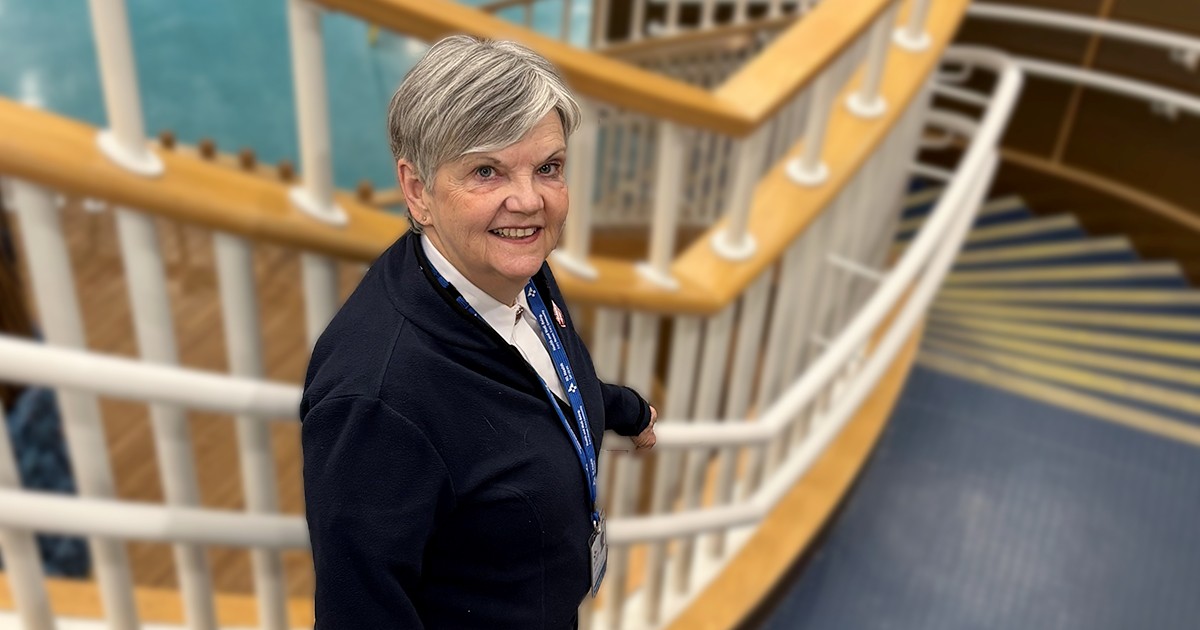Did you know that The Salvation Army also has a salute? We raise the index finger of our right hand above shoulder height, pointing to God, as a way of saying that God deserves all glory and praise.
At a recent emergency disaster response, I was asked, “When will The Salvation Army finally get rid of its military terminology and those silly uniforms?” Even within the Army, there are those who think it’s time to do away with some of our symbols and traditions. Is the Army salute meaningful? What purpose does it serve? I had never put much thought into it. Until yesterday.
It was my great privilege to serve as a pallbearer for Major Lorraine Abrahamse, a fellow officer and a friend. It was a beautiful service of celebration as we honoured her life and ministry and rejoiced in her “promotion to glory.” Unsurprisingly, there were many Salvation Army officers present, both active colleagues and the retirees who blazed the trail before us. At the end of the service, all officers present were invited to form an honour guard to flank both sides of our colleague as we carried her casket out of the sanctuary. As we made our way to the beginning of the honour guard, something happened that I did not expect, and its impact will remain with me for the rest of my life and ministry.
As the casket reached the first officers in the guard, they began to quietly and solemnly raise their right index fingers in salute. The salute continued as we passed each officer. It wasn’t long before the magnitude of the moment became almost too much for my emotions to handle, and my eyes overflowed so that I could hardly see where I was going.
Why? Well, I’m still processing what it all meant to me, but I know this for sure. I am blessed to have been called to work with some of the greatest people on earth, people who give of themselves tirelessly to meet basic human needs and spread the gospel of Jesus Christ in whichever city or town The Salvation Army appoints them. Are any of them perfect? No, but some of them have sacrificed so much to respond to the life of ministry, often working with limited resources and expected to meet whatever task is placed before them each day.
As I watched the faces of my colleagues that day, I was profoundly aware that many of them have been forced to deal with criticism; have forfeited meals and time with their own families to respond to a hospital call or a grieving family; have wrestled with their own convictions and studied hard to determine what God is leading them to say or do; and, often with limited skills, have worn many hats in ministry, required to be administrators, business professionals, pastoral counsellors and public orators, one minute planning events for children, and the next for seniors.
In each of their appointments, they have been compared to those who have gone before, and—in the minds of some—did things better. Given that they will eventually move on to another community and another appointment, there are whole generations of officers who have no idea what it feels like to establish lifelong friendships. Some, like my friend Lorraine, have to come to terms with the reality that none of us are immune to sickness and death. And yet, they seek no praise. Instead, they raise their index finger and silently say, “To God be the glory.”
Captain Sheldon Bungay is the divisional youth secretary in the Newfoundland and Labrador Division.










Comment
On Friday, March 13, 2020, Calvin Collins said:
On Monday, March 9, 2020, Darlene sutton said:
On Monday, March 9, 2020, Barb z Townsend said:
On Friday, March 6, 2020, Lucy Tuck said:
On Friday, March 6, 2020, CSM Richard Parr said:
On Friday, March 6, 2020, Peck Koopman said:
On Thursday, March 5, 2020, Jackson Christy said:
On Thursday, March 5, 2020, Doreen payne said:
On Thursday, March 5, 2020, Stephen Court said:
On Thursday, March 5, 2020, Local officer Raymond Friday ,Boise Idaho said:
On Thursday, March 5, 2020, Concerned said:
Leave a Comment